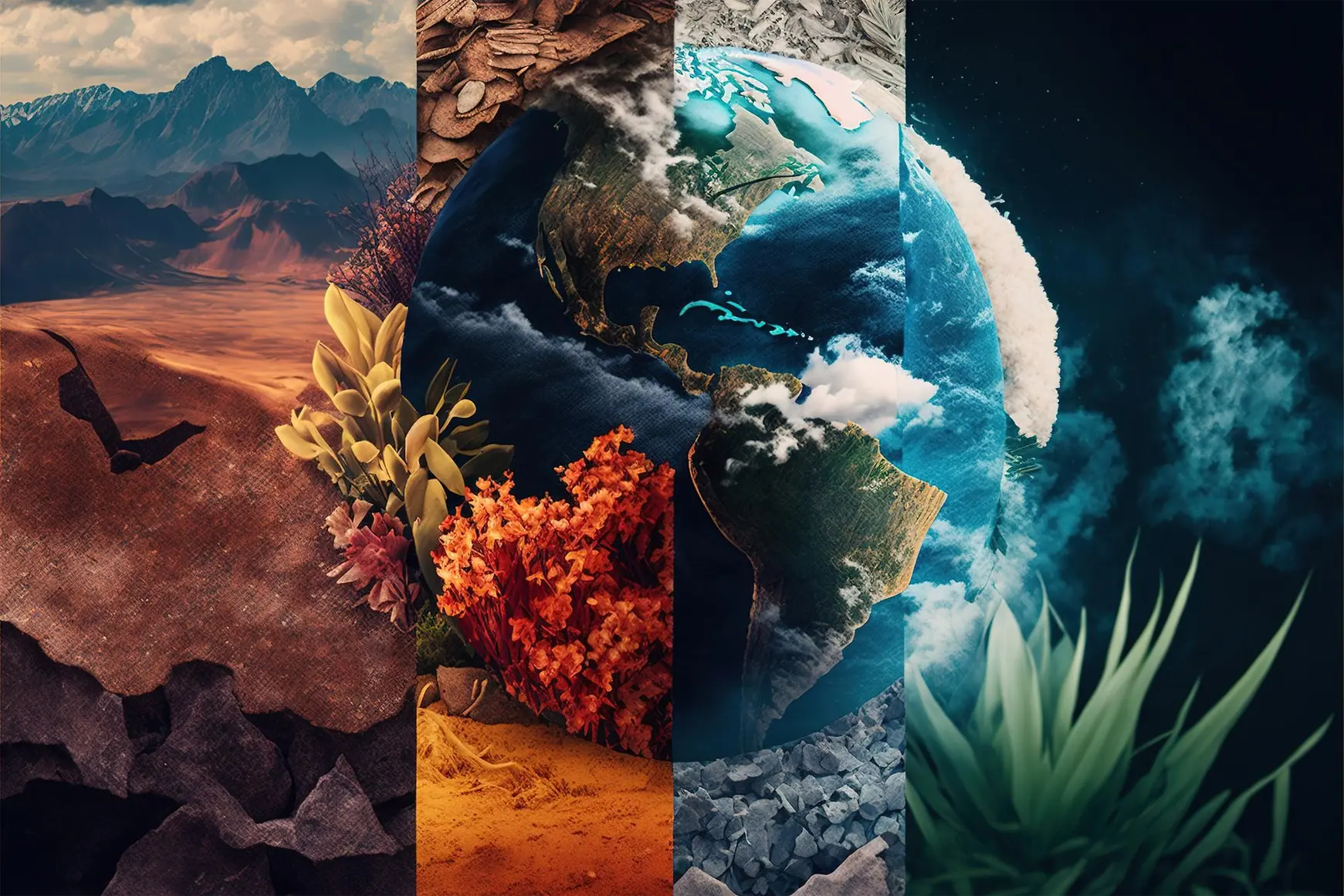Climate change is when the Earth’s weather changes for a long time. This happens because people are doing things that make the air dirty, like burning oil and gas. This dirty air traps heat from the sun and makes the Earth warmer. When the Earth gets warmer, it causes different weather patterns, like more floods, droughts, and hurricanes. It’s a big problem that we need to do something about right away so that we can make it better.
Humans are responsible for global warming?
People are responsible for global warming. We make the air dirty when we burn things like coal, oil, and gas for energy. This dirty air traps heat from the sun and makes the Earth warmer. Cutting down trees, factories, and farming also makes the air dirty. Scientists all agree that people are the main reason for climate change, and it’s causing the Earth to warm up a lot. A group of important scientists from the United Nations said that it’s very likely that people are the reason for the warming we’ve seen since the middle of the last century.
People are experiencing climate change in diverse ways
Climate change is affecting people in different ways, depending on factors like where they live, how much money they have, and how vulnerable they are. Here are some examples of how people are being affected:
Extreme weather: As temperatures rise, we’re seeing more floods, hurricanes, and droughts that damage homes, businesses, and infrastructure.
Health problems: Climate change is making some health problems worse and creating new ones. Higher temperatures are making heat stress, dehydration, and diseases from mosquitoes and tick more common.
Money problems: Climate change is hurting industries like farming, fishing, and tourism, which means people are losing jobs and money.
Moving away: Rising sea levels are making flooding worse and forcing people to leave their homes. Hurricanes and wildfires are also causing people to have to move.
Not enough food: Climate change is hurting the growth of crops, which makes it harder for people to get enough food. This is especially bad for people who are already struggling.
These are just some of the ways that climate change is affecting people. It’s important to find fair solutions that take into account how different people are being affected.
Every increase in global warming matters
Every increase in global warming is important because even a small change in temperature can have a big impact on the environment and people. The Earth’s temperature has already gone up by about 1.1°C (2°F) since before factories and cars, and this is causing problems like more heatwaves, bigger floods, and rising seas. Animals and plants are also being hurt.
To avoid the worst effects of climate change, we need to limit how much the Earth warms up. The Paris Agreement says we should try to keep it under 2°C (3.6°F) and ideally under 1.5°C (2.7°F). To do that, we need to stop making so much pollution by using clean energy and being careful with how we use land and resources.
We can all help by doing things like using less energy, driving less, and recycling. Every little thing we do can make a difference in the fight against climate change.
We face a huge challenge but already know many solutions
Addressing climate change is a huge challenge, but there are already many solutions available. Some of the solutions include:
Renewable energy: Transitioning to renewable energy sources like solar, wind, and hydropower can decrease greenhouse gas emissions from the energy sector.
Energy efficiency: Improving energy efficiency in buildings, transportation, and industry can reduce energy demand and greenhouse gas emissions.
Sustainable transportation: Encouraging the use of electric vehicles, public transport, and active transportation like cycling and walking can reduce greenhouse gas emissions from the transportation sector.
Sustainable agriculture: Implementing sustainable agricultural practices such as conservation tillage, crop rotation, and agroforestry can decrease greenhouse gas emissions from the agricultural sector.
Reforestation and forest conservation: Reforestation and forest conservation can remove carbon dioxide from the atmosphere and reduce emissions from deforestation and forest degradation.
Carbon pricing: Implementing a price on carbon can incentivize companies and individuals to decrease their greenhouse gas emissions.
Climate adaptation measures: Preparing for the impacts of climate change by implementing adaptation measures such as flood protection, drought-resistant crops, and early warning systems can reduce the negative impacts of climate change on human societies and the environment.
These are just some examples of the solutions available to tackle climate change. It is important to implement a range of strategies and to take action at all levels, from individuals to global institutions, to address this global challenge.
We can pay the bill now, or pay dearly in the future
It’s true that we have a choice to make regarding climate change – pay now or pay more later. If we don’t take action to address climate change, we will face serious consequences such as increased health problems, economic losses, and damage to ecosystems and infrastructure.
But if we act now, we can also reap many benefits, such as improved public health, economic growth, and job creation in the clean energy sector. By investing in renewable energy, energy efficiency, and sustainable transportation, we can create new jobs and stimulate economic growth. Additionally, implementing adaptation measures can protect communities and infrastructure from the impacts of climate change.
While there is a cost to taking action on climate change, it’s important to remember that the cost of inaction will be much higher in the long run. By acting now, we can address this global challenge and create a sustainable future for ourselves and future generations.

